From the Rabbi
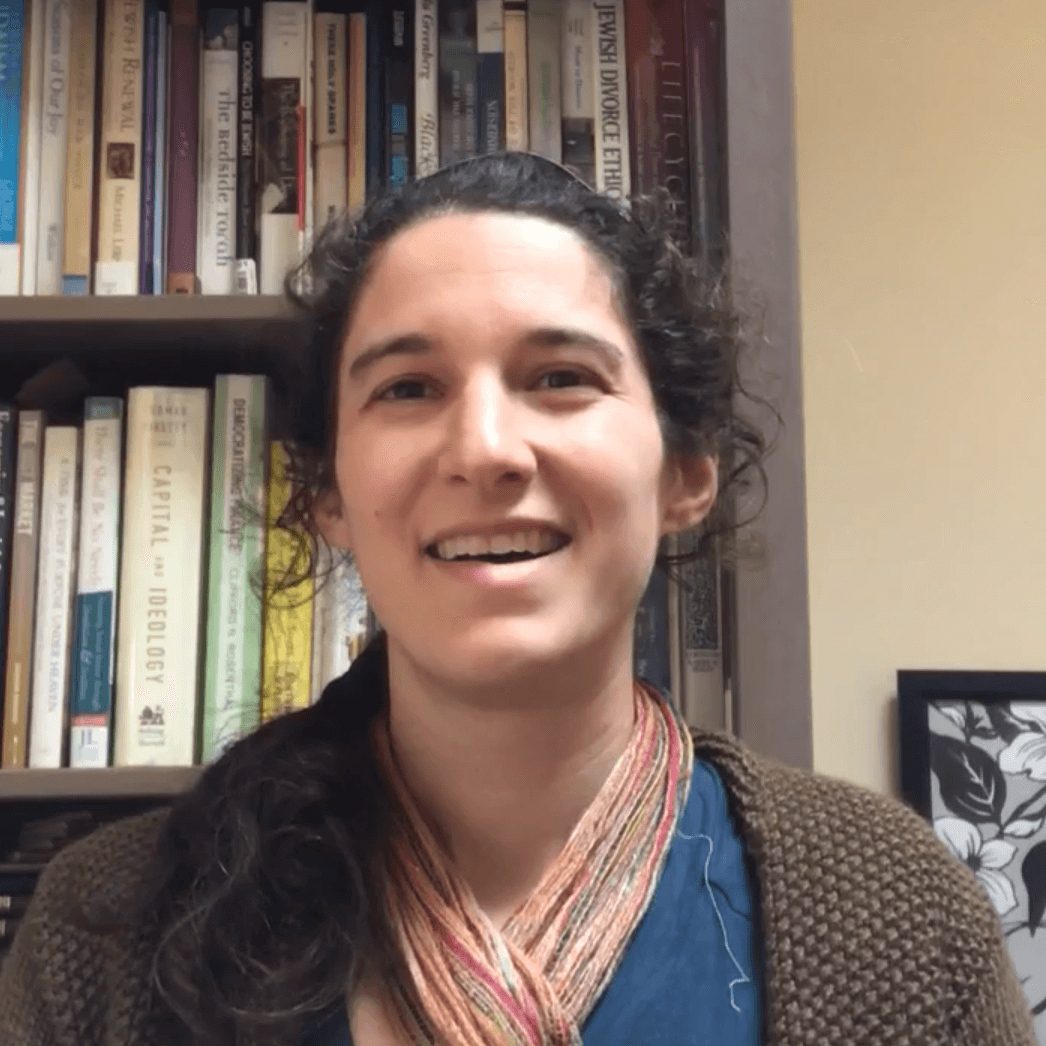
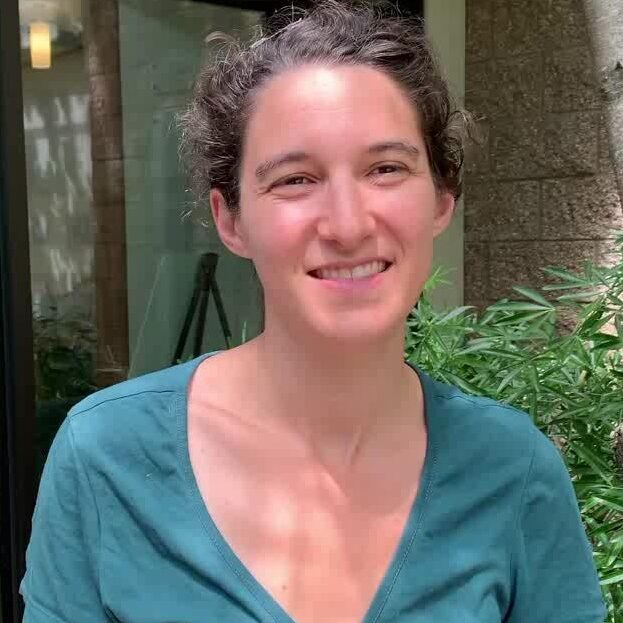
For Parashat Bechukotai, what is it we want to bring that’s “extra”—not required—to the facets of our lives?
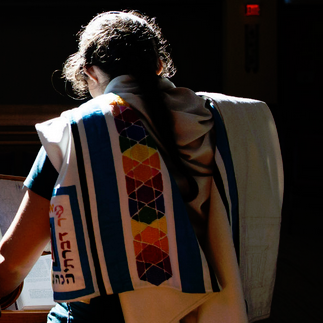
Bechukotai 5784
Reading Bechukotai makes me tired. Not just sleepy, but existentially exhausted.
Bechukotai is a parashah that is deeply committed to the significance of human action and inaction. Perhaps individually, we may not deserve our blessings or curses, but on a societal level, there is no randomness in the theology of Bechukotai. Live in right relationship with the land, feed the hungry, act with justice, the parshah promises, and we will be blessed with superabundance: rain when we need it, bumper harvests, and confidence against our enemies. There will be physical riches, as in verse 10: You shall eat old grain long stored, and you shall have to clear out the old to make room for the new – meaning, Or HaChaim says, the our grain will be secure enough in its storage to improve with age, and so abundant that we’ll only discard it because all of our storage houses overflow with new grain. There will also be spiritual riches, as in the following verses – that We will feel the presence of Hashem dwelling among us.
But fail in these regards, fail to keep the sabbatical/seven year cycles, the yovel/jubilee 49 year cycles, fail to be good guests on the land, and we’ll get a mockery of the cycles of blessings: rebuke and punishment that, the parashah promises first in verse 18, then in verses, 21, 24, 28, if even after these punishments you do not obey me, I will go on and smite you sevenfold for your sins.
What strikes me about the punishments is not just horror of hunger and war, but the psychological punishments that are part of it.
In Chapter 26, verse 26, for example, the threat is, “When I break your staff of bread, ten women shall bake your bread in a single oven; they shall dole out your bread by weight, and though you eat, you shall not be satisfied.” There’s a very specific, tangible curse here – food scarcity. But at the end of the verse, there is the psychological residue: even when you do eat – you will not be satisfied. Rashi teaches that this refers to a curse in the intestines. Chizkuni suggests that this curse is the inverse of a blessing offered back in verse 10 that you will eat from grain long held in storage.
Similarly, verse 36 and 37 threaten:
As for those of you who survive, I will cast a faintness into their hearts in the land of their enemies. The sound of a driven leaf shall put them to flight. Fleeing as though from the sword, they shall fall though none pursues. With no one pursuing, they shall stumble over one another as before the sword. You shall not be able to stand your ground before your enemies.
There is a threat of real war and violence; but then there is also the explicit threat of the lingering trauma – the inability to trust that we are ever safe. The fear of the threat, as much a curse as the threat itself. In this week’s d’var Torah from the Jewish Orthodox Feminist alliance, this curse is referred to in the words of the late Talmudic scholar Adin Steinsaltz as “existential anxiety.”
The author of the JOFA dvar contrasts that anxiety, with the promise of storing up old grain, with the ability to think long-term.
And I don’t know how to talk about this without either slipping into cliches or into exhaustion. We are so far from right relationship with the land – either the land of Israel, or any land. And we are in that compounding punishment: where there is real threat, real violence and conspiracy theorizing. October 7th happened, more than half of the hostages are still in Gaza and protesters around the world call to “globalize the intifada,” and “resistance by any means necessary.”
And:: We run even when no one is pursuing. Our Jewish tendency to lash at out anyone who questions Israel’s actions, who questions the assault on Rafah as the best tool for stopping terrorism. Our desire to hide our faces from the abuses by our fellow Jews in the West Bank, to deny and deflect any claim that maybe the IDF isn’t quite as careful about civilian lives as we want to insist that is; our desire to claim all the humanity for our own side and all the atrocity for the other – these too, are the curses, reverberating, sevenfold. What are we if we aren’t innocent victims?
Here we are, as the passages foretells, scattered to further ends of the earth, literally, than our biblical ancestors could have imagined existed. Feeling vulnerable, sighing over the land of Israel, our bread heavy in our stomachs, indigestible as the children of Gaza starve, as the fruits on the border rot with no one to pick them. Even when we eat, we are not satisfied. How could we be?
It will be a long way back.
And yet, Torah foretells that too. The book of Vayikra doesn’t leave us there, in the trauma. Hashem doesn’t leave us there. When we go into exile, the divine presence is exiled with us. Hashem promises at the end of this exhausting chapter – literally and metaphorically – that the covenant is still in force. Which means we can do better. We can learn to bear our ancestral traumas without inflicting them on others. We can learn to only run when someone is chasing us, and when to stop running, when to listen, and be in conversation. It will start with opening our hearts – with breaking our hearts.
Back in 2020, in preparation for the election, I remember being on a webinar where Rabbi David Stern said something really powerful. He said ‘we need to heal. And healing isn’t the same thing as palliative care. Healing hurts.”
With that, I’d like to share an excerpt from a poem distributed this week by my colleague, Rabbi Ariel tov-Lev, who writes, “I’ve been having this problem where lately, when I show empathy for one group, I’m accused of having no empathy for another. I have been told I have no empathy for the hostages because I’ve expressed empathy for those in Rafah. I’ve been told I have no empathy for Palestinians because I’ve expressed empathy for the hostages. But. . . Our hearts can break for more than one people, and there is hope in the heartbreak.”
empathy is not an exhaustible resource
although it is at times exhausting
we are our only limiting factor
the heart is never so open
as when it is broken
let it break, let it break
May we have the strength to feel our broken hearts. Chazak chazak, v’nitchazek. Be strong, be strong and strengthen each other.
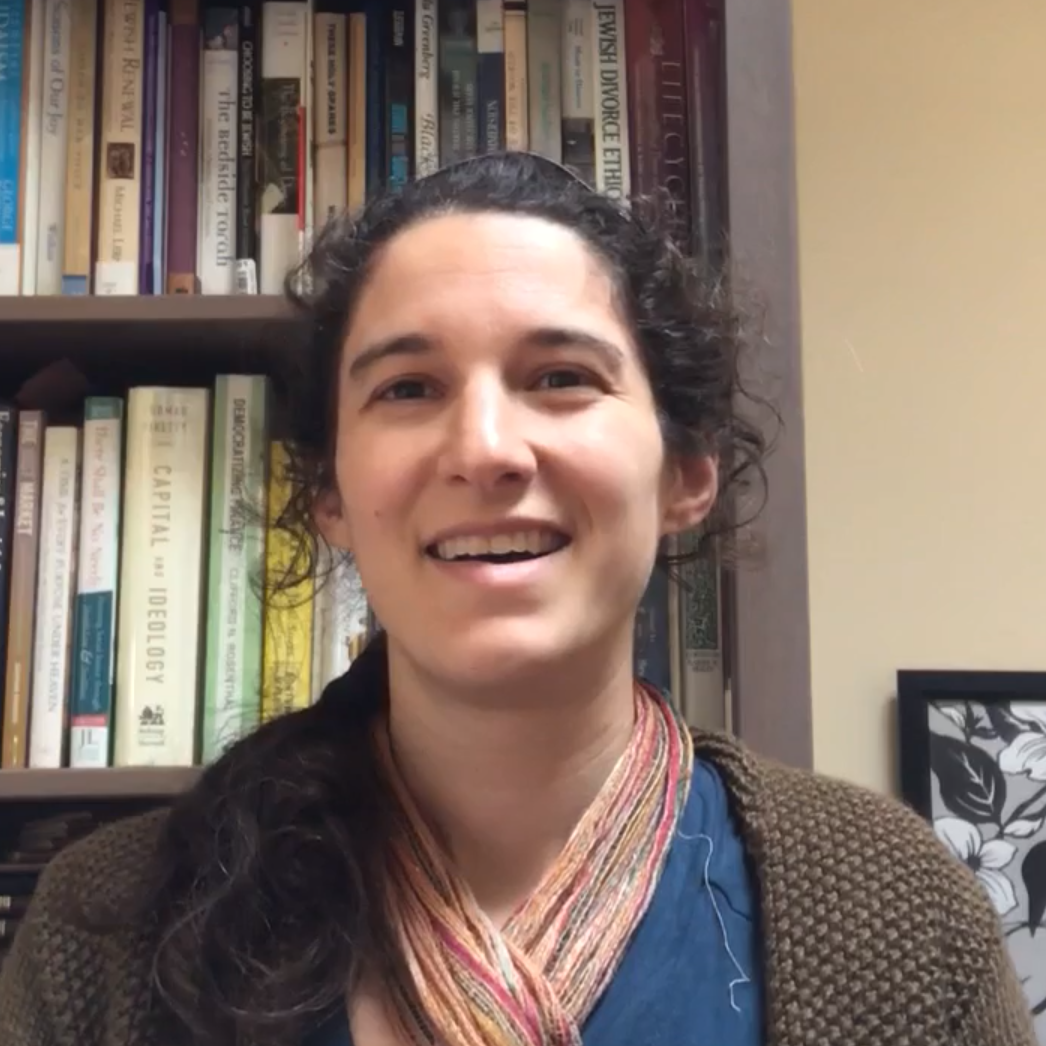
Counting Towards Something (May/June 2024)
From the second night of Pesach, for forty-nine days, we are in the period known as sefirat haOmer, the counting of the Omer. This practice of counting each day is based directly on a biblical proof text from Leviticus 23:15-6, which instructs us, using agricultural terms, to count each day for seven weeks until the holiday of Shavuot.
It’s not enough to be freed from Egypt. We have to have a trajectory towards something. And for the ancient Israelites, it was towards Sinai, towards revelation, not just of the laws of the Torah but of the communal identity that would bind them – and us – together for thousands of years.
That commitment to Jewish learning and identity gets relived every year on Shavuot, when study Torah late into the night. This year, our Shavuot will be particularly revelatory, as eight Adult B’nei Mitzvah students who have never taught Torah before will share their Torah with anyone who shows up.
Attendance at Shavuot at TBI usually has not been as high as attendance at our Passover seder. Maybe that’s because it’s easier to think about what we’re running from than what we’re looking towards. Whether it’s Egypt in the story of the Exodus, or antisemitism today, we know what it is that we have to resist. And there is always something.
At the same time, we were not freed from Egypt just be in flight. We were freed in order to receive Torah, to create beautiful communities and live holy lives. This is of course aspirational—we will not always live up to it! But Judaism cannot survive (arguably should not survive) if it only exists in opposition or defiance of something else. The counting of the Omer, whether one takes on the daily practice or not, reminds us to be oriented toward a vision of what we are becoming. Shavuot does not celebrate overcoming an earthly enemy. It celebrates our own willingness to receive a gift. And to take on a responsibility. I hope many people will join, learn from and help celebrate the Adult B’nei Mitzvah students. They themselves will not be completing a process, as I have often reminded them, but marking a milestone of their own continued becoming.
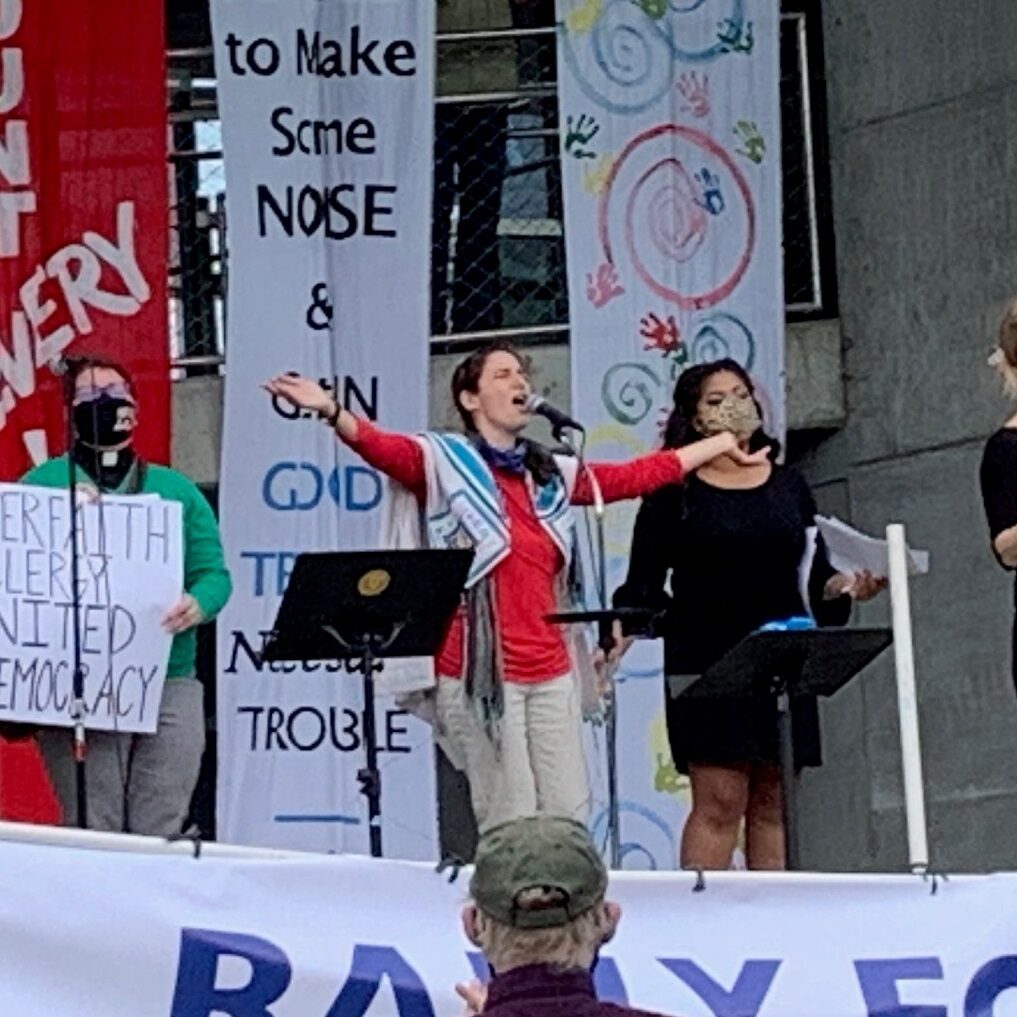
Losing sight of the pregnancy in abortion debate
The Register-Guard (December 2021)
Two years ago I underwent a harrowing medical condition. For nine months, my body housed a rapidly expanding uterine growth. It drained my energy, created arthritic symptoms in my joints and caused weight gain of almost 40 pounds. I expelled it from my body in a dangerous process involving 17 hours of increasingly intense pain.”¯I required several weeks of recuperation.
I willingly put up with this””twice! I wanted the babies, and I love the children they are becoming. But as abortion is relitigated, and the issue remains framed as “pro-choice” or “pro-life,” I feel perturbed.
We largely don’t talk about pregnancy when we talk about abortion “” about lawmakers decreeing that other people’s bodies must house something that is excruciatingly uncomfortable and potentially mortally dangerous for nearly a year. In our society, this process coincides with lack of support for the well-being of those women’s bodies and insufficient time to recover from the physical exhaustion of pregnancy and birth.
When I recall this exhausting condition, I am pained at the idea that anyone who doesn’t want to be a parent would be forced to endure pregnancy.
I strongly believe in protecting innocent life. While my faith tradition doesn’t teach that human life begins at conception, I can respect that belief. I can even agree that in an ideal world, abortion would never happen outside of medical necessity; people would have the knowledge and resources to prevent unwanted pregnancy and every conception would be wanted.
The Bible demands that we all care for the widow, the orphan, the stranger: the vulnerable who tend to be invisible and neglected. But as a spiritual leader, I am also aware that it is easy “” and even cheap “” to demand that someone else do the caring. The harder and more important spiritual challenge is recognizing the obligations in our own lives to care for the vulnerable.
Rob Schenck, an evangelical minister who spent decades working to ban abortion, wrote a New York Time op-ed in 2019 about his change of heart. He admitted that pro-life work often ends at birth, failing to provide any social or financial support for young mothers and children.
In his words, “I can no longer pretend that telling poor pregnant women they have just one option “” give birth and try your luck raising a child, even though the odds are stacked against you “” is ‘pro-life’ in any meaningful sense.”
Pregnancy is difficult enough when it is wanted, as mine were. In a society that fails to prevent sexual violence or offer even basic sex education, let alone health care, parental leave or other services, it is immoral to require women to just “take responsibility” for an unwanted pregnancy.
Those who refuse to advocate for welfare, guaranteed food, housing, child care and medical care for needy families are guilty of cheap caring when they simultaneously demand that women find room within their very bodies for fetuses they do not want.
It’s easier to demand another person put her own body at risk to nourish a life than it is to accept a personal share of responsibility for all the lives already here.
Her column will resume after she completes a five-month sabbatical in June 2022.

View our archive of her past newsletter columns, her divrei Torah (sermons), and writings of former rabbis and other members of the TBI community.